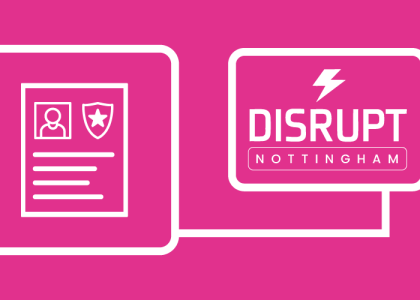Should you hire someone with a criminal record?

Should you welcome a convicted criminal into your team? It’s a decision most of us would rather not have to make.
Yet it’s something that affects real candidates, alters workplace dynamics, and puts your organisation’s values to the test. So where should you draw the line?
Why it's such a taboo
It’s not often the subject of criminal records comes up at work. In the workplace, we tend to hold back personal opinions when there’s a risk of offending others. But the question of whether to hire someone with a criminal record forces decision-makers to bring these personal judgements into a professional setting, and what’s more, to use them in a way that affects people’s lives.
As an HR or hiring manager, you’re likely to face this conundrum at some point during your career. And it’s one that can make even the most experienced professionals feel uneasy.
Aside from the decision itself, there’s the fear of judgment and backlash that comes with it. You might worry about how employees will react if they discover a colleague has a conviction. On the flipside, not hiring someone because of their criminal record could be perceived negatively. It can feel like a lose-lose situation, and these tensions make the issue difficult to tackle head-on.
What the law says
If you’re expecting employment law to take the decision off your hands, you might be disappointed. UK law doesn’t provide a simple rulebook for handling criminal records. Instead, there’s a patchwork of regulations to contend with.
Some roles, particularly those involving young people and healthcare, require an Enhanced Disclosure and Barring Service (DBS) check. It’s illegal to employ someone to carry out certain activities if they’ve been barred from working with children or vulnerable adults.
For roles that fall outside this category, you won’t be able to carry out the highest level of DBS check, but you can still perform a Basic DBS check. This will flag any convictions that are unspent, meaning they’re still within the period where they need to be disclosed.
If a candidate has a spent conviction (one that no longer needs to be disclosed), this won’t come up on the lowest level of DBS check, and you can’t lawfully exclude them from a job on this basis either.
If you discover an unspent conviction, however, the law offers little guidance on using this information to make hiring decisions.
- P.S. Do remember to comply with GDPR rules when processing any criminal offence data.
A thorny issue for employers
If you’re responsible for recruitment, you probably feel the weight of this dilemma. On one hand, you have a duty to protect your employees, customers and brand reputation. On the other, you may believe in second chances and want to build an inclusive workplace. Excluding everyone with a criminal record could cut you off from a significant portion of the workforce, but it might also be a reasonable way of keeping your people safe.
As with many HR matters, there isn’t a universal answer, and you’ll probably need to make decisions about criminal records on a case-by-case basis. Picture two scenarios:
- A candidate discloses a minor offence from ten years ago that has no bearing on the role
- Another reveals a recent conviction for fraud while applying for a finance position
The applicant's perspective
It’s not just employers who feel anxious in these situations; the process can be incredibly stressful for affected applicants and employees too.
A criminal record sticks to someone long after they’ve served their sentence, shaping how others see them. And most people don’t want their past mistakes dragged out into the open, especially in a professional setting.
Imagine the situation from the other side of the interview table. You’ve served your time, rebuilt your life, and are ready to contribute. But when applying for your ideal job, you’re faced with the question of when, how, and even whether to disclose your record.
Say too much too soon, and you risk instant rejection. Say too little, and you fear being found out later. If interviews are nerve-wracking for most of us, imagine the dread of watching a recruiter’s face as you confess to a past crime.
Even when you’re in the workplace, disclosure can continue to be stressful. Do you tell your colleagues or keep your past private? The worry of keeping such a secret could affect someone’s wellbeing and performance. At the same time, opening up about a past transgression could mean being treated differently, and it may even limit opportunities for career progression. Even if a conviction is already spent according to the law, the social stigma can linger.
Drawing the line
It’s easy to talk about criminal records in the abstract. But in practice, each situation is shaped by many factors. What was the offence? How long ago did it happen? Has the person shown signs of rehabilitation? And does the role involve particular responsibilities or risks?
There’s no single formula that applies in all cases, and while this gives organisations freedom to make their own decisions, it also creates a burden of responsibility for leaders and HR functions.
So where do we go from here? While for some roles, the law is clear and safety must come first, for others, the line is blurry; in these cases, your decision will come down to organisational values and your approach to risk management.
Rather than finding definitive answers, it’s perhaps more useful to keep asking the right questions. Dilemmas like this keep us thinking about how to build a fair, inclusive workplace that also prioritises safety and wellbeing. They challenge us to ensure our hiring practices are free from unnecessary bias so that candidates have a proper chance to demonstrate their value. And finally, they remind us to stay open to difficult conversations in the workplace.



